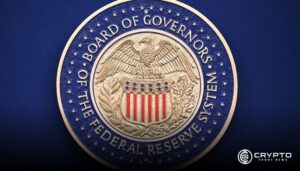- US Stocks Lose $1.25T as Inflation Beats Forecasts
- Consumer Confidence Hits Lowest Since November 2022
- Trade Tensions and Inflation Shake Market Stability
Investors caused market value to drop by more than $1.25 trillion during Friday trading on the US stock market as they processed inflation data alongside continuing trade disputes between countries.
Dow Jones Industrial Average (DJI) experienced over 700-point decline although both S&P 500 and Nasdaq Composite posted substantial losses as investors reacted to the Personal Consumption Expenditures (PCE) Index exceeding expectations that showed ongoing inflationary trends.
Stocks Drop as Inflation Data Exceeds Expectations
The Federal Reserve maintains the Core PCE Index as its preferred metric that grew by 0.4% during February exceeding market predictions. The inflation rate increased yearly by 2.8% which indicates that ongoing inflation surpasses the Federal Reserve’s target goal of 2%.
Jerome Powell who leads the Federal Reserve had claimed that inflationary forces would be temporary yet new data indicates lasting inflation challenges persist. Recent market data has caused analysts to think that interest rate reductions could remain on hold for an indeterminate period.
Consumer sentiment showed significant decline as the University of Michigan’s consumer confidence index reduced from 64.7 in February to 57. The current index indicates its most minimal position since November 2022 because inflation worries and job-related security issues continue to escalate.
Trade War Concerns Add to Market Uncertainty
On the market front President Trump confirmed his plans for imposing Canadian import tariffs known as trade tensions. The president made this statement shortly after his talk with Canadian Prime Minister Mark Carney who solidified US intention to push through with tariffs.
Stocks experienced an initial price increase because policymakers indicated tariff reductions yet immediately dropped when the administration announced 25% foreign car levies. Market participants monitor the situation carefully because new reciprocal tariffs are scheduled for April 2.
A significant alteration occurred when the GDPNow model from the Federal Reserve Bank of Atlanta revealed US economic growth would drop to 2.8% during the first quarter instead of remaining at its prior projection of 1.8%. Public officials admit to being perplexed about economic conditions due to a “zero visibility in a dense fog.”




